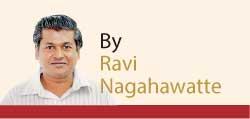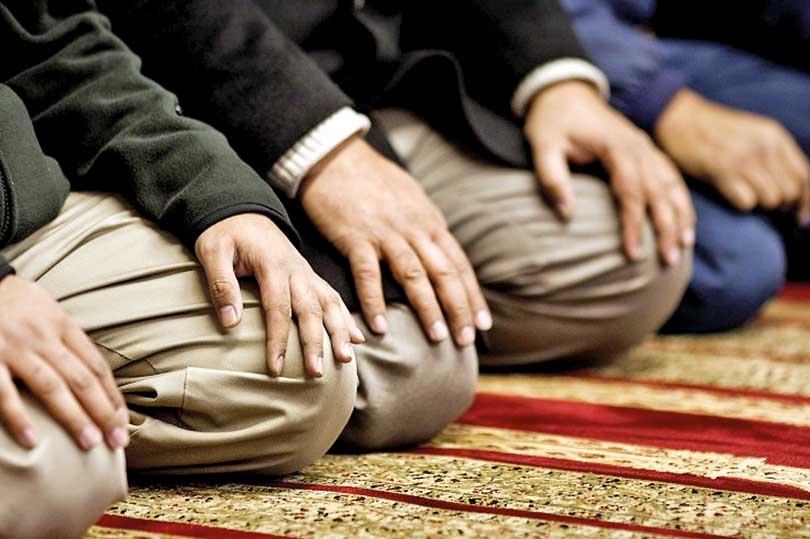Reply To:
Name - Reply Comment

 Reading the mind of someone practising the Islam faith would be much difficult than reading the mind of a terrorist. This could be because there are many breakaway sects of the Islam faith; each claiming purity of the religion in the way it is practised.
Reading the mind of someone practising the Islam faith would be much difficult than reading the mind of a terrorist. This could be because there are many breakaway sects of the Islam faith; each claiming purity of the religion in the way it is practised.
Now we hear of the radical group called National Thawheeth Jama’ath being blamed for the recent series of bombings. Most of these radical Islamic groups apart from fighting to claim territory also promote their versions of the Islamic faith.
We have heard of the work of radical Maulavis (Muslim priests) who have promoted a somewhat distorted form of the holy Quran. These Maulavis conducted classes for the youth and brainwashed those who came to them; influencing their minds in the process so that they become different, radical and also violent. There are newspaper reports of such Maulavis getting into arguments with members of the rest of the Muslim communities and leaving these villages afterwards. But we read about those who still operate in this manner.
In this context it’s important to note what a Buddhist priests aired on Sirisa television a few days ago. The priest, who was part of a discussion which featured a Hindu priest and a mawlana as well, made a request from the Muslim religious leader to have a system through which all outsiders who migrate to Muslim dominated villages can be identified. The monk said that in the Buddhist community by speaking to the father, who is a regular at the temple, the son’s details and whereabouts can be obtained. There have been occasions within the Muslim community where despite the father practising the holy Quran his sons have joined radical Islamic groups and studied a distorted form this faith.
Coming back to the radical Islamic groups operating in Sri Lanka do they leave avenues open for democracy to flourish? No such movement can gain wide acceptance if it stifles freedom in the society and forces its culture on the people
These breakaway sectors are present in every faith. But the damage done to the society has been immense with regard to the breakaway radical Islamic groups.
Take for an example the Islamic State of Iraq and Syria (ISIS) which organisation’s prime ambition is to gain territory. But while it spreads its violent net (ISIS operates in 18 countries) around the world it also specifies the importance of promoting a radical form of Islam which endorses violence. ISIS regards ‘Muslims who do not agree with their interpretation of the Quran as infidels or as apostates.
These breakaway religious sects may achieve their ambitious targets, but rarely have they gained wide public acceptance. But one person did in the 1940s in India which merits mention here. In 1941 Abul Ala Maududi formed the Jamaat -a- Islami organisation. The seeds to form the organisation were sown at a time during India’s struggle for freedom. All this happened because ‘India failed to discern the difference between Hindu Nationalism and Indian Nationalism. Also Indian leaders had not shelved the thoughts that the Muslims were their number one enemy. Hence the Muslims were ‘disaffected and almost disillusioned’ writes Ziya US Salam who reviewed the book ‘Religion in Critique’ in which its author Irfan Ahamed pens the journey of Maududi as a religious revolutionist.
Maududi spearheaded the forming of a movement which worked towards ‘establishing a society based on the Sharia and came to use the tools of modern secular democracy and found a place of its own.

Most radical Islamic groups promote their versions of the Islamic faith
Another reason which prompted Maududi to form the Jamaat was the fact that the Congress could not accommodate all faiths. Another reason was that the Congress could not safeguard Muslim interests. He was as a result driven to do an in-depth study of Islam. During this time his research also unearthed the fact that ‘a lot of corruption had crept into daily lives’.
The radical Islam groups in Sri Lanka probably share some of Maududi’s ideologies which border on extremism. His teachings blame men for the degradation of women. This is because men encourage women to step out of their ‘natural space’-which is home. Maududi also termed education as poison. But all this poses the question whether such radical thinking also threatens democracy; a tool which has helped women evolve from being mere housewives to stateswomen and even the head of state.
Another reason which prompted Maududi to form the Jamaat was the fact that the Congress could not accommodate all faiths. Another reason was that the Congress could not safeguard Muslim interests
Coming back to the radical Islamic groups operating in Sri Lanka do they leave avenues open for democracy to flourish? No such movement can gain wide acceptance if it stifles freedom in the society and forces its culture on the people. Such religious groups can’t justify their existence if they denounce other religions and threaten peace in the society.
Though the Government of Sri Lanka gives pride of place to Buddhism, the Supreme Court regards this country as a secular nation.
There is enough in this island for the Muslims to cherish. The Muslims community may comprise just 9.7% of the total population of the country. But it has its representatives in Parliament with their own lawmakers carrying the voices of this minority community via the Sri Lanka Muslim Congress (SLMC) and the All Ceylon Makkal Congress (ACMC). Only the SLMC offered its condolences through press releases out of the two Muslim political parties regarding the Easter Sunday blasts.
But there were Muslims who wept along with the rest of the nation in mourning the dead. Whatever the religion one practises it’s important to retain that human touch. If any religious teaching disregards this we put ourselves in a very dangerous position.